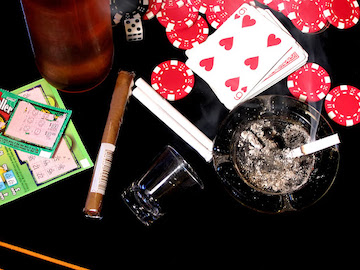Now They Say Booze Won’t Kill You….So What?

Vice seems an irresistible topic for scientific inquiry. I’ve yet to see a double-blind study that looks at the gambling success of johns who drink and smoke after recently engaging a prostitute. But I’m sure it’s out there.
However, I have seen a good number of scientific studies that look at the impact of alcohol consumption on the human body. The most recent study concludes that a previous study was wrong about the level of alcohol consumption that is safe. People like me who are in the business of selling wine tend to look at this kind of study and wipe their brow thinking, “whew, scientific bullet dodged.” But while we think that, we really don’t care that much one way or another.
As to the new conclusions, the Sunday Times reports:
“A landmark paper published in the Lancet in 2019 stoked fears that consuming even small amounts of alcohol is likely to cause changes in blood pressure and increase the risk of a stroke.
It overturned a mainstream theory that a regular glass of wine could actually be beneficial for heart health because of the protective antioxidants contained in the drink.
But the new report, by scientists from University College London and the London School of Hygiene and Tropical Medicine claims the Lancet analysis was flawed.
Sir Nicholas Wald, an expert in epidemiology and preventative medicine at UCL, told The Times that while it is difficult to define what a safe amount of alcohol is, it is not true to say a single glass is harmful.
He said: ‘One cannot now say any amount of alcohol is harmful in the same way as one can say any amount of smoking is harmful.
‘The occasional glass of wine or no more than a glass of beer, say, every other day would be acceptable given our current state of knowledge. One need not feel that the only safe alcohol intake is zero.'”
Of course, this is how “science” is supposed to work. Falsification being a necessary element of any scientific work, researchers examine previous conclusions, perhaps using new information or new analytical techniques and update findings.
As to the debate concerning the impact that wine drinking has on our health, the Lancet study mentioned above was an outlier in its conclusion that no level of drinking is safe for humans. But take note of the new conclusion in the new study: “The occasional glass of wine or no more than a glass of beer, say, every other day would be acceptable given our current state of knowledge.”
No one cares. And no one is going to change their drinking habits based on this information. In 30 years I’ve only seen one study of wine that made any difference to the drinking habits of Americans and that was the “French Paradox” study that seemed to show that two glasses of red wine per day was very beneficial to one’s health. Looking back on consumption levels this study seemed to clearly result in more wine consumption. We can speculate as to why that is but I think we all know why. Try to imagine a study that concludes, “data shows playing blackjack in a casino twice per year increases human longevity”. We all like scientific proof that our vices are actually beneficial. But those kinds of conclusions are rare. This new study is not one of those.
A good number of us know that excessive drinking or smoking or gambling isn’t good for our physical or mental health. But those of us that do drink, smoke or gamble understand that a little bit probably isn’t going to kill us. We don’t KNOW this, but our experience tells us this.
Our own anecdotal experiences are not examples of hard science. But when faced with our own experience on the one hand and study after study after study of contradictory conclusions concerning vice, we are likely to disregard the science and lean on our own conclusions.

It’s a good thing you are in the wine world, and not in the arena of anti-viral treatments. Tarred and feathered for daring to dissent. As for me, I extract all the arsenic (remember that lawsuit) out of my wine before I drink it. So far, I have .00009 nanograms, extracted from 18 cases worth of red wines.